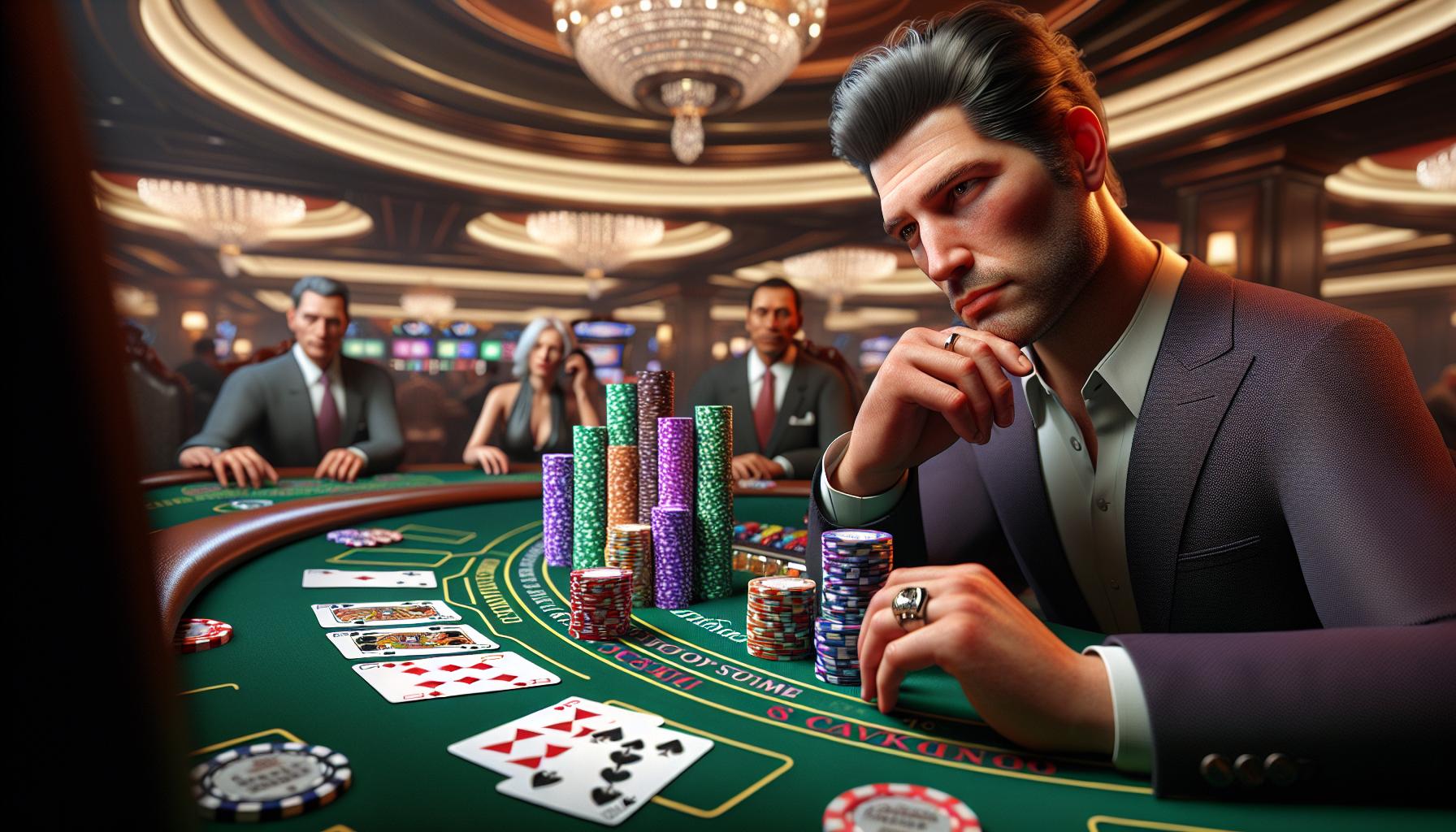Blackjack isn’t just about luck—it’s a game of strategy where every move counts. Enter “doubling down,” a tactic that can turn the tables in your favor. Imagine doubling your bet after spotting a promising hand; it’s the perfect blend of risk and reward.
Mastering when to double down can elevate your gameplay from basic to brilliant. Whether they’re seasoned players or just hitting the tables for the first time, understanding this move can boost confidence and winnings. Let’s dive into what doubling down means in blackjack and how it can help outsmart the dealer.
Understanding Doubling Down
Doubling down is a pivotal strategy in blackjack that can enhance a player’s potential winnings. It involves adjusting the original bet under specific circumstances to optimize outcomes.
Definition And Basics
Doubling down allows players to double their initial wager after receiving their first two cards. In return, players receive exactly one more card and then must stand. This strategy is most effective when the initial hand has a high probability of success. Typically, players double down on totals of 9, 10, or 11. For example, a total of 11 offers a strong chance of hitting a high-value card, increasing potential profits. Casinos may have specific rules regarding doubling down, such as limiting it to certain hand values or restricting it based on the dealer’s upcard. Understanding these fundamental aspects is essential for effectively integrating doubling down into a blackjack strategy, allowing players to make informed decisions that can significantly impact their game performance.
When To Double Down
Strategically doubling down depends on both the player’s hand and the dealer’s visible card. Players often double down when holding a total of 10 or 11, especially if the dealer shows a lower card like 4, 5, or 6. These dealer cards increase the likelihood of the dealer busting, creating a favorable situation for the player to enhance their bet. Additionally, doubling down on a total of 9 can be advantageous if the dealer’s upcard is between 3 and 6. Conversely, players should avoid doubling down when the dealer has a strong upcard, such as an Ace or a 10-value card, as the odds of the dealer achieving a high total improve. Timing the double down move appropriately based on these conditions maximizes the potential for increased winnings and strengthens overall gameplay.
Rules And Regulations

Doubling down in blackjack follows specific rules set by each casino. These guidelines determine how and when players can double their initial bets.
Casino-Specific Rules
Casinos vary in their doubling down policies. Some allow players to double on any two initial cards, while others restrict it to totals of 9, 10, or 11. The number of decks used also impacts doubling options; single-deck games often offer more flexibility compared to multi-deck games. Additionally, certain casinos permit doubling after splitting pairs, enhancing strategic possibilities. Maximum and minimum doubling bets differ across establishments, ensuring adherence to table limits. Reviewing specific casino rules before playing enables players to effectively incorporate doubling down into their strategy.
Common Restrictions
Most casinos enforce standard limitations on doubling down. Typically, players receive only one additional card after doubling, preventing further hits. Doubling down on soft totals, such as an Ace and 6, is often prohibited. Casinos may also restrict doubling when the dealer shows strong upcards like a 10 or an Ace, reducing the house’s advantage. Minimum and maximum bet limits for doubling are commonly applied, ensuring wagers stay within set boundaries. Adhering to these restrictions is essential for players to utilize doubling down effectively within the game’s established framework.
Strategies For Doubling Down
Doubling down can significantly boost a player’s advantage when used correctly. Implementing the right strategies maximizes potential returns while minimizing risks.
Optimal Scenarios
Players should consider doubling down when holding a total of 10 or 11, as these hands offer high potential for strong final hands. For instance, a 10 paired with a 7 increases the chance of reaching 17, which stands a good chance against the dealer’s range. Additionally, doubling down is effective when the dealer shows a weak upcard, such as a 4, 5, or 6, which are more likely to result in dealer busts. In single-deck games, the probability of favorable outcomes improves, making doubling down even more advantageous. When holding a soft 16 (an Ace and a 5), doubling down can also be beneficial if the dealer displays a low card. These scenarios provide the best balance between risk and reward, enhancing the player’s strategy and potential winnings.
Mistakes To Avoid
Avoid doubling down on totals below 9, as these hands have a lower chance of improving to a strong final hand. For example, a 7 paired with a 2 rarely results in a beneficial outcome. Refrain from doubling down against strong dealer upcards like 10 or Ace, since the dealer is more likely to achieve a high final total or blackjack. Another common mistake is ignoring table rules, such as restrictions on doubling after splitting, which can limit strategic options. Additionally, never double down on soft totals in casinos that prohibit it, as this can lead to unnecessary losses. Overlooking the number of decks in play can also hinder decision-making, as strategies vary between single and multiple-deck games. By avoiding these errors, players maintain a disciplined approach and improve their overall performance in blackjack.
Pros And Cons Of Doubling Down
Advantages
Doubling down offers several strategic benefits in blackjack. It increases potential winnings by allowing players to double their initial bet with strong hands, such as totals of 10 or 11. Additionally, it can pressure the dealer when they show a weak upcard like 4, 5, or 6. Effective use of doubling down shifts the odds in the player’s favor, especially in single-deck games where favorable outcomes are more likely. Players maximize their return on investment by capitalizing on these optimal scenarios.
Potential Risks
Doubling down introduces inherent risks that players must consider. Committing an additional bet can lead to significant losses if the next card doesn’t improve the hand. Misjudging when to double down often results in unfavorable outcomes, particularly against strong dealer upcards like Ace or 10-value cards. Furthermore, varying casino rules restrict doubling down opportunities, limiting strategic flexibility and potentially reducing expected returns. Players must carefully weigh these risks to avoid undermining their overall blackjack strategy.
Conclusion
Doubling down adds depth to blackjack strategy allowing players to maximize their bets when the odds are in their favor. By understanding when to use this tactic effectively players can boost their winning potential. Staying aware of casino rules and practicing disciplined decision-making enhances the overall experience. Mastering the art of doubling down gives players an edge and makes their blackjack gameplay more rewarding.





